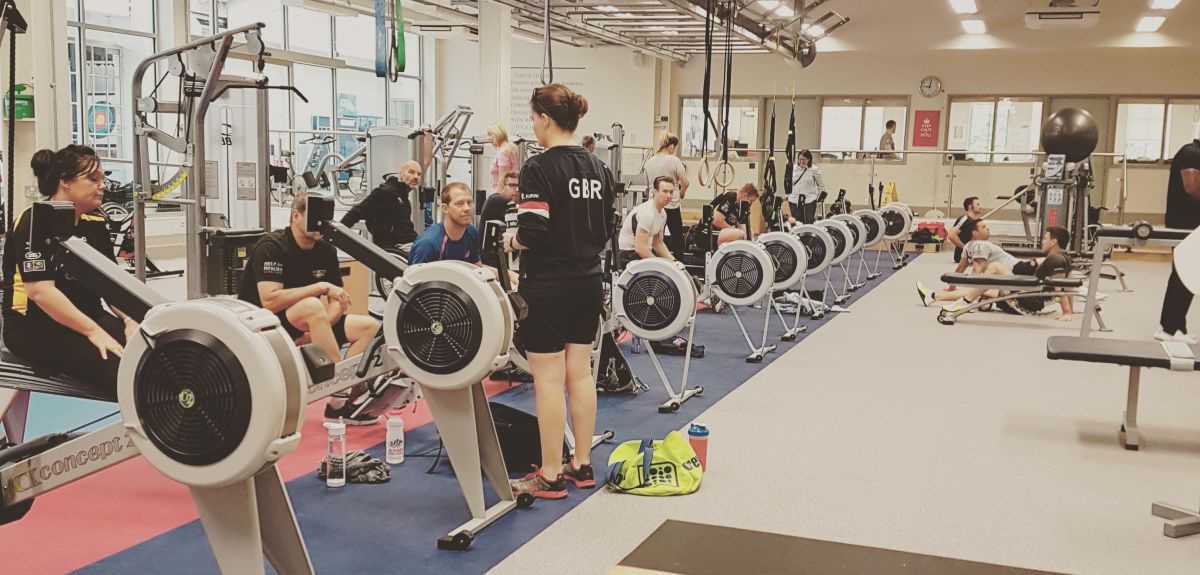
War veteran turned Oxford student to compete at Invictus Games
Faith Fordham is on a journey.
After serving almost seven years as a Royal Navy medic, in Afghanistan, she was discharged from service in 2011. Faith left the military with a number of physical injuries and a Post Traumatic Stress Disorder (PTSD) diagnosis.
Despite the challenges she has faced, Faith has just successfully completed a PGCE qualification in Chemistry at Pembroke College, and will soon take part in the Invictus Games Toronto 2017. Canadian-born Faith is set to compete in the rowing, powerlifting, athletics and swimming events at the international sporting competition for wounded, ill and injured military personnel and veterans.
She talks to Scienceblog about going from the military frontline to the classroom, and what taking part in the Games’ means to her.
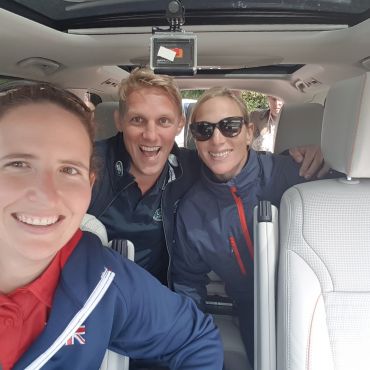 Image credit: Faith Fordham
Image credit: Faith FordhamFaith grabs a selfie with Zara Tindall and Lewis Moody, former England Rugby Captain.
What inspired you to become a science teacher?
When I left the military my world was torn apart. It was my life and all that I wanted my life to be.
I lost my identity and in searching for a new one, applied for a science PGCE. I got offered a place and with a lot of encouragement from friends and military peers, I decided to accept it. I’ve not looked back since.
My depression always clouded my future, which made it impossible to set any goals. Invictus has given me an escape and allowed to me to maintain bonds with my military peers. Having something to focus on has shown me that I do not need to be defined by my illness.
How has living with a mental health condition affected your studies?
A mental health condition changes your entire life outlook.
When I left the military I became severely depressed. There have been long periods of time where I have been unable to leave my house and at one point even attempted to take my own life. Over the last few years’ things have improved - but I still have dark days and always will.
My depression always clouded my future, which made it impossible to set any goals. However, having something to focus on has shown me that I do not need to be defined by my illness.
Pembroke College have always been supportive, giving me an extension when needed and acknowledging the needs of my condition even when I did not. I do not want my mental health to define me, so sometimes push myself to do things, like go to college, when I’m not in the right frame of mind. My Disability Mentor and I had a great relationship and at those times they would tell me that I shouldn’t be there, and to go home and take care of myself.
How has training and preparing for the Invictus Games supported your recovery?
Since starting training, my confidence has risen and I have found a reason to get up in the morning. I am slowly figuring out who I am and where I belong.
When I first started training my goal was to lose weight. But I hit my target and needed another goal to aim for, so decided to apply for the Games’.
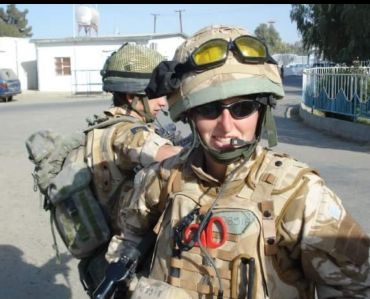 Image credit: Faith Fordham
Image credit: Faith FordhamFaith on active duty in Afghanistan
What does taking part in the Invictus Games mean to you?
My Invictus experience has given me an escape and allowed to me to maintain bonds with my military peers. It was hard to adjust to society after active duty, but through the event I can get my fix and then come back to the real world.
Since leaving the Royal Navy I have had a number of surgeries, but when training for the Games’ I forget about it all. One of my rowing teammates has lost three limbs. But when we are competing you don’t notice his injuries, only his strength. When we are out in public I see how others look at him though, they fixate on his injuries. But that is not how he - or any of us, see ourselves.
Lots of my students are from disadvantaged backgrounds, I want them to hear my story and know that if you keep going and pushing, you can always turn a corner.
How have your experiences influenced your teaching style?
I’m definitely more understanding of their experiences.
Because of my hardships students find it very easy to relate to me. During my school teaching placement I noticed that being able to relate to a mentor is really important to young people. Lots of their role models, like the musician Eminem, have overcome their own circumstances.
I’m not afraid to open up to them or share my experiences. Lots of my students are from disadvantaged backgrounds - some are young carers etc. I want them to hear my story and know that if you keep going and pushing, you can always turn a corner. Even if you lose something you can progress and make something of your life in other areas.
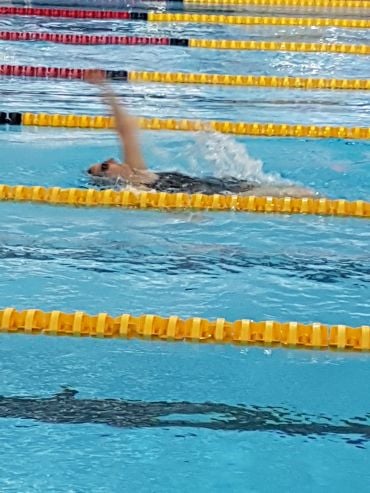 Image credit: Oxford University
Image credit: Oxford UniversityFaith will compete in the swimming, rowing, athletics and powerliftng heats at next month's Invictus Games.
Why did you choose to teach chemistry?
I always liked science as a child and chemistry was actually my worst subject. But the experimental side of things has always appealed to me.
What do you like most about teaching?
I enjoy helping young people to expand their horizons and discover new things - particularly young girls. I did my teaching placement at a mixed school and an all girls’ school, and noticed that in mixed science class rooms, girls seem to say less.
Young girls need to know that stereotypes do not matter. Science – particularly physics and chemistry, is for them too. I loved my time at Oxford University, and think their community outreach work, visiting schools and showing students what a career in science looks like, really helps in this area.
Faith celebrating a rowing victory with Lewis Moody, former England Rugby Captain.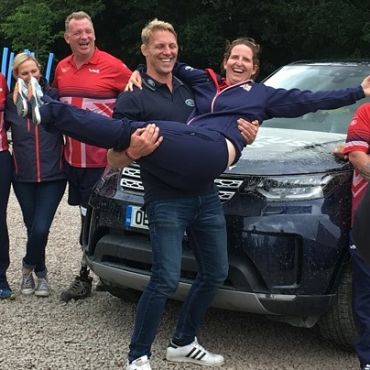 Image credit: Faith Fordham
Image credit: Faith Fordham
What is next for you?
In early September I start my Newly Qualified Teaching Year (NQT) at Rye Saint Anthony School, Oxfordshire, and of course have the Invictus Games in Toronto at the end of the month.
Long-term, I want to focus on my teaching career and hopefully progress to Head of Department one day. I also want to complete a Masters Degree in teaching and science – I’m just deciding which to do first.
Like anyone who has been in the military, I can never sit still for too long.